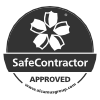Competence Of A Legionella Risk Assessor And Proportionality
Last time we looked at agreeing the scope of the assessment and the independence of the risk assessor, next we will be reviewing the competence of the assessor which is a topic that is becoming more widely discussed. So, let’s start with a simple question – What experience and specialist knowledge should a Legionella risk assessor demonstrate? Well both BS8580-1:2019 and the LCA’s Risk Assessment standard for service delivery outline the expectations of knowledge and understanding required by risk assessors, these include but are not limited to:-
- The type of water system(s) and associated equipment to be assessed.
- The factors affecting the colonisation by and growth of Legionella.
- The evaluation and assessment of risk from Legionella and the adequacy of controls in place.
- The procedures necessary to complete surveys, measurements and sampling.
- The corrective actions that can be applied to reduce or eliminate the risk.
- The relevant control measures that can be applied, e.g. water treatment, temperature control, thermal and chemical disinfection, cleaning, inspections, monitoring, etc.
- The relevant monitoring techniques to assess the performance of the control measures, e.g. temperature and biocide monitoring, sampling for microbiological testing.
- The suitability of records required to demonstrate compliance.

Author
The article was written by Kris Rowland, our Head of Technical, Training and Compliance. Kris has more than 20 years of experience in the industry and is responsible for monitoring our clients’ compliance with the assets we manage on their behalf using ZetaSafe, our bespoke compliance monitoring tool.
Sign up to our newsletter
Keep up to date with the world of water treatment

Legionella Risk Assessment: Agreeing The Scope & Demonstrating Independence
In part 1 of this series, we discuss how a compliant Legionella control scheme must be based on a compliant risk assessment. What do you need to do to comply with the British standard?
Many Legionella service providers claim that their risk assessments are conducted and produced in line with BS8580-1: 2019, but what does that really mean? What do you need to do to comply with the British standard?
Can Any Qualified Risk Assessor Complete A Survey Of Any Type Of Water System?
Well, the answer would be no, and this is a point that ‘end users’ or ‘buyers’ can sometimes miss. When deciding on a Legionella risk assessment provider it is important that the ‘end user’ make themselves satisfied the assessor who will be completing the survey and report is competent in assessing the target water system. It is advisable that this is done during the ‘scoping’ phase to ensure that a suitable assessor is selected ahead of time thus avoiding issues with omissions when reviewing a draft or completed report. When It comes to selecting an appropriate assessor the ‘end user’ must be clear on the types of water systems that are to be included in the scope of the risk assessment as this is one of the main determining factors. In summary water systems can be categorised as follows:-
- Hot and Cold water systems (None-Healthcare)
- Evaporative Cooling Systems
- Other Risk Systems
- Hot and Cold water sustems (Healthcare)
For a more detailed breakdown of specific water systems and requirements for each of these categories please see Appendix 1 of the LCA’s Legionella Risk Assessment standard for service delivery.
How Does An 'End User' Or 'Buyer' Of A Legionella Risk Assessment Go About Checking The Competence Of An Individual Risk Assessor?
As its clearly not as simple as asking the assessor to provide a training certificate. Well, each provider of Legionella risk assessment services has a responsibility to demonstrate the competence of their staff / assessors, so asking for the latest competency review of the assessor would be a good place to start, you would expect a thorough competency assessment to cover the points raised above and preferably be completed on site during the process of an assessment. It may also be prudent to ask the risk assessment provider to supply a number of examples of previously completed assessments of water systems of a similar type and complexity for review.
The Proportionality Principle In Risk Assessments
Another topic which often comes up in relation to Legionella Risk Assessments is one of proportionality, this is especially relevant in organisations who manage a large portfolio of buildings and water systems such as local authorities, housing associations, private landlords and care providers- but where do we start? Well, there are some key principles contained in various guidance documents which build a case for how to plan and manage completing risk assessments in these types of organisations.
The first principle we must establish is accountability, HSG274 Part 2, paragraph 2.138 sets the scene well where it states:-
‘Landlords who provide residential accommodation, as the person in control of the premises or responsible for the water systems in their premises, have a legal duty to ensure that the risk of exposure of tenants to Legionella is properly assessed and controlled.’
It follows on to state in paragraph 2.139 that ‘Where a managing (or letting) agent is used, the management contract should clearly specify who has responsibility for maintenance and safety checks, including managing the risk from legionella. Where there is no contract or agreement in place or it does not specify who has responsibility, the duty is placed on whoever has control of the premises and the water system in it, and in most cases, this will be the landlord themselves.’ Therefore, the key point to take away here is if you are a landlord ensure that responsibility for all aspects of Legionella control from the risk assessment to any routine monitoring or maintenance is documented in an agreement.
Do We Have To Risk Assess All Our Properties Water Systems And All At The Same Time?
Well, HSG274 Part 2 recommends the following in paragraph 2.146 ‘It may be impractical to risk assess every individual residential unit, eg where there are a significant number of units under the control of the landlord, such as Housing Associations or Councils. In such cases, a representative proportion of the premises for which they have responsibility should initially be assessed, on the basis of similar design, size, age and water supply, with the entire estate eventually assessed on a rolling programme of work.’ With this guidance in mind, it is important to focus on a couple of key points, those being:-
- That the ‘representative proportion’ of risk assessed systems should be based on risk (design / complexity, age, size, water supply)
- All water systems should be assessed, even if it is carried out over time.
Often landlords can misunderstand the above and be of the impression that as long as they risk assess a proportion of similar water systems that not all would require to be risk assessed, however the guidance in these scenarios is really clear as all water systems require a Legionella risk assessment to be completed – remember that just because the water system is similar to many others it does not mean that there are no deviations on an individual basis. Local plumbing may have been modified, environmental conditions such as scale deposition, biofilm formation and corrosion of system components can all vary from one premises to another, these key factors in Legionella growth and proliferation could easily be missed if only a selection of similar water systems / properties were assessed in total.
Choosing The Right Risk Assessor
Whether you are a company or individual carrying out a Legionella Risk Assessment, or are responsible for managing the health and safety of your water systems, your choice of risk assessor should be based on the competence of that service provider. We hope that this article has provided you with an insight into how to make an informed decision in choosing the right expert for the job. We can help you identify and understand any potential risks of Legionella and help you implement measures to either eliminate or control the risk. Reach out to one of our experienced team today.
Join our mailing list to be the first to know about our next article, where we will be looking at what constitutes a ‘review’ of a Legionella Risk Assessment.










